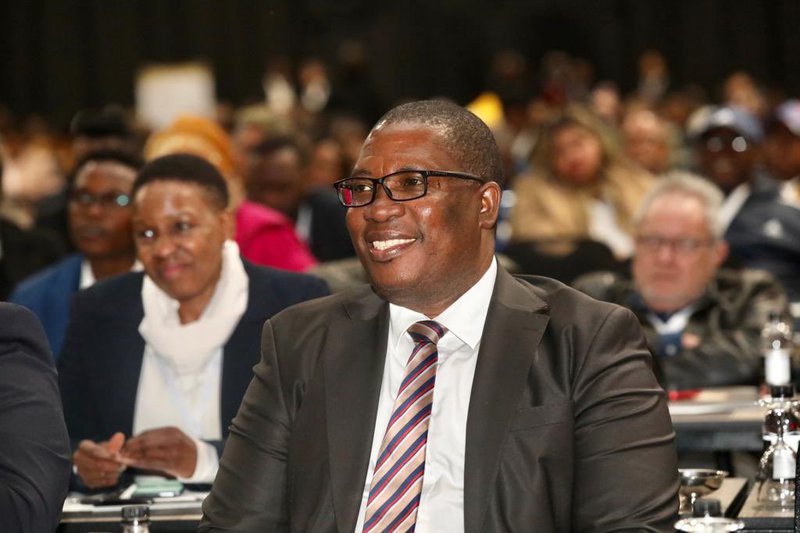Lesufi calls for drastic steps to solve Gauteng’s energy cri
Updated | By Masechaba Sefularo
Gauteng Premier Panyaza Lesufi has called for drastic action to address the energy crisis plaguing the province’s municipalities.

Load shedding, infrastructure maintenance and ongoing sabotage, Eskom debt, and the transition to green energy were some of the issues the premier listed as key challenges to be tackled in order to overcome the energy emergency.
Lesufi spoke at the province’s energy indaba in Midrand on Thursday, where various stakeholders in the energy sector gathered to discuss lasting solutions to the challenge.
He asked Eskom to consider scrapping municipal debt for those who make the requisite application, just as Treasury scrapped troubled utility’s own debt.
“There’s already a proposal on the table, and they say for us to scrap your debt, you must pay your current account, convert to pre-paid meter system, and you must be in a position to honour the debt arrangements that we had before.
“So, if all our municipalities can do that, which is what we are urging them to do.”
Lesufi also called on the 11 municipalities in Gauteng to commit to paying off their R13 billion debt while naming and shaming the Emfuleni local municipality as the biggest defaulter.
READ: Eskom seize Emfuleni assets to recoup R5.8bn debt
“Of the R13 billion, R7 billion comes from Emfuleni alone. They are followed by Tshwane, who owes R3.5 billion, something that we never had from Tshwane. Ekurhuleni is next owing Eskom R2.9 billion. At least Johannesburg owes Eskom R1.7 billion. Rand West owes R1 billion.
“I want us to applaud this municipality. Out of the 11 municipalities, there’s only one municipality that is not owing Eskom…it’s the Midvaal municipality.”
The premier called on all defaulters, including provincial and national departments owing municipalities, to pay up.
R1.2 billion has been allocated towards resolving Gauteng’s energy crisis, while the province aims to add 8000 megawatts of electricity to the grid through the Merafong solar plant.
‘STOP HIDING BEHIND THE ELDERLY’
Lesufi’s called for the re-capturing of the indigent lists that inform who authorities may support and exempt from paying for essential services.
But he added that those who can afford to pay should not hide behind the poor and the elderly while leading violent service delivery protests.
One person died, and at least two vehicles were torched last week when the community of Slovo Park informal settlement barricaded the N12 while demanding the premier addresses them over their service delivery demands.
READ MORE: More violence as Slovo Park residents split over protest
“Let’s have the register of those that are not capable of paying electricity that will be electronically available to all municipalities and citizens. So that the poor are shielded from paying.
“Because those that are protesting, and capable of paying for electricity, they parade the elderly and say ‘we can’t pay because we have the elderly’ whereas they can afford to pay for electricity.”
He added: “We want to be the first province to say all those who get social grants, especially pensioners; we must not exercise any form of debt control to them. But, if they have backrooms and there are people who hire them, those people in the backrooms must not hide behind the elderly. They must have their own meters and pay for the electricity.”
Meanwhile, the chairperson of the South African Local Government Association (Salga) in Gauteng, Jongizizwe Dlabathi, said it was imperative to leave the Indaba with lasting solutions as tensions and protests were escalating as a result of municipalities battling to provide basic service, with the unstable supply of electricity affecting other utilities such as water.
Dlabathi said it was getting harder for municipalities to collect revenue.
“The availability of electricity in a more reliable manner remains key to the quality of life and economic activities. The province is taking a serious knock from this energy crisis, slowing productivity and impacting service offerings…
“Communities are dissatisfied, and local government is bearing the brunt of absorbing the pressure that comes with load shedding.”
Dlabathi called for a review of grants to municipalities. He said it’s concerning that of the R6 billion earmarked by the Department of Minerals and Energy for the integrated national electrification program; municipalities were only allocated 27%.
ALSO READ:

Show's Stories
-
WARNING: Pretoria parents urged to beware of increase in chi
Here's what you need to know about the spike in child kidnappings in Pre...
Breakfast with Martin Bester 2 weeks, 4 days ago -
LISTEN: Rope Runner Marissa Groenewald's fight against human
The powerful reason Marissa is so passionate about 'rope running'.
Breakfast with Martin Bester 2 weeks, 4 days ago